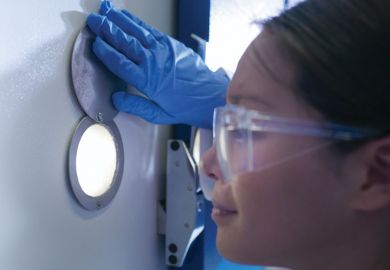Around the world, conversations about how science can be developed often focus on increasing investment and seeking new strategies. However, the response to the Covid-19 pandemic has once more underlined that there are other factors that are no less in need of immediate attention and action if we want science to better address the emerging challenges we face today.
One is communication difficulties. In the old days, the dissemination of science seriously lagged behind discovery because of the limited means to keep a wide audience informed about advances. In today’s digitally networked society, instant dissemination of information across the globe has become possible. However, in science, we are still some way from fully capitalising on that because we are still grappling with the issue of how to make information and data more open.
People have gradually realised that the solution lies in the promotion of open access to journals. This is certainly rational, but it in turn raises the issue of how to ensure quality and reasonable payment for publication. So far, no global consensus on this has been reached, and further efforts are needed to determine the most logical design of open access mechanisms.
Even if the open access issue is solved, there is another problem. Disparities and imbalances in the scientific strengths of different individuals and nations do exist, yet it is also impossible to overlook non-meritocratic inequalities. The opinions and papers of some individuals are more easily published and circulated than those of others; the people at a disadvantage include junior scientists, researchers from scientifically underdeveloped countries and those from non-English-speaking countries. With the continuous development of language technology, the language barrier could hopefully be removed, but the issue of power imbalances will still be a lingering question, even though the principle of equality has been always emphasised.
There is also a more fundamental problem, in that, over the years, the forces that drive scientific development have become more and more complicated. While the original motivations, such as human curiosity and the need to adapt to the living environment, are still at work, many confounding factors have been added.
The pursuit of personal gain, rather than pure scientific excellence, is the most visible and widespread. It is now corroding scientific culture and values, jeopardising cooperation among individual scientists. To make matters worse, these tendencies are sometimes coupled with policy complications, such as assessments that give undue weight to a person's or institute’s total number of publications and/or the impact factors of the journals in which they appear, while neglecting the quality of the papers. Such policies impose further incentives for people to hoard and potentially misuse data, escalating the issue of perverse incentives to an issue that deserves great global attention.
Moreover, for various complicated reasons, basic research has taken on the same competitive characteristics as technologies and patents, thus undermining openness, cooperation and public-spiritedness.
A further problem is that the traditional linear categorisation and understanding of basic research, applied research and product-focused experimental development are somewhat outdated. Meeting the real-world challenges we face requires the adoption of all three types of R&D activities simultaneously, as well as the convergence of knowledge and application.
As science continues to advance, these issues, at different levels, will grow even more complicated and severe. Left unsolved, they will greatly hamper communication and cooperation among individuals, groups, disciplines and even wider communities. Where there is no mutual trust, there is no cooperation, and certainly no concerted efforts to tackle challenges.
Take the Covid-19 pandemic. Some publishers have made the relevant publications instantly open access, at least for the time being, and this has greatly promoted the research and been warmly welcomed by the scientific community. Yet a lack of coordination and cooperation among research communities, science funders and governments is obvious, and duplication of investment is commonplace. Imagine what it would be like to have a pan-global plan, with shared resources and seamless cooperation.
We anticipate an era of open science in its real sense, in which global resources will be more efficiently utilised, different disciplines will work together seamlessly, scientific output will be more rapidly disseminated, open cooperation will be further expanded and research results will benefit everyone equally. But to get there, we will need the wisdom and common purpose to overturn multiple layers of existing norms.
As I’ve explained, not all these norms are scientific. But I hope that if it can get its own house in order, science can play a major role in promoting globalisation and focusing policy on human advancement.
In other words, science must do what it can to create the conditions that will allow it to exert its full, collective strength.
Jinghai Li is president of the National Natural Science Foundation of China.
Register to continue
Why register?
- Registration is free and only takes a moment
- Once registered, you can read 3 articles a month
- Sign up for our newsletter
Subscribe
Or subscribe for unlimited access to:
- Unlimited access to news, views, insights & reviews
- Digital editions
- Digital access to THE’s university and college rankings analysis
Already registered or a current subscriber? Login








